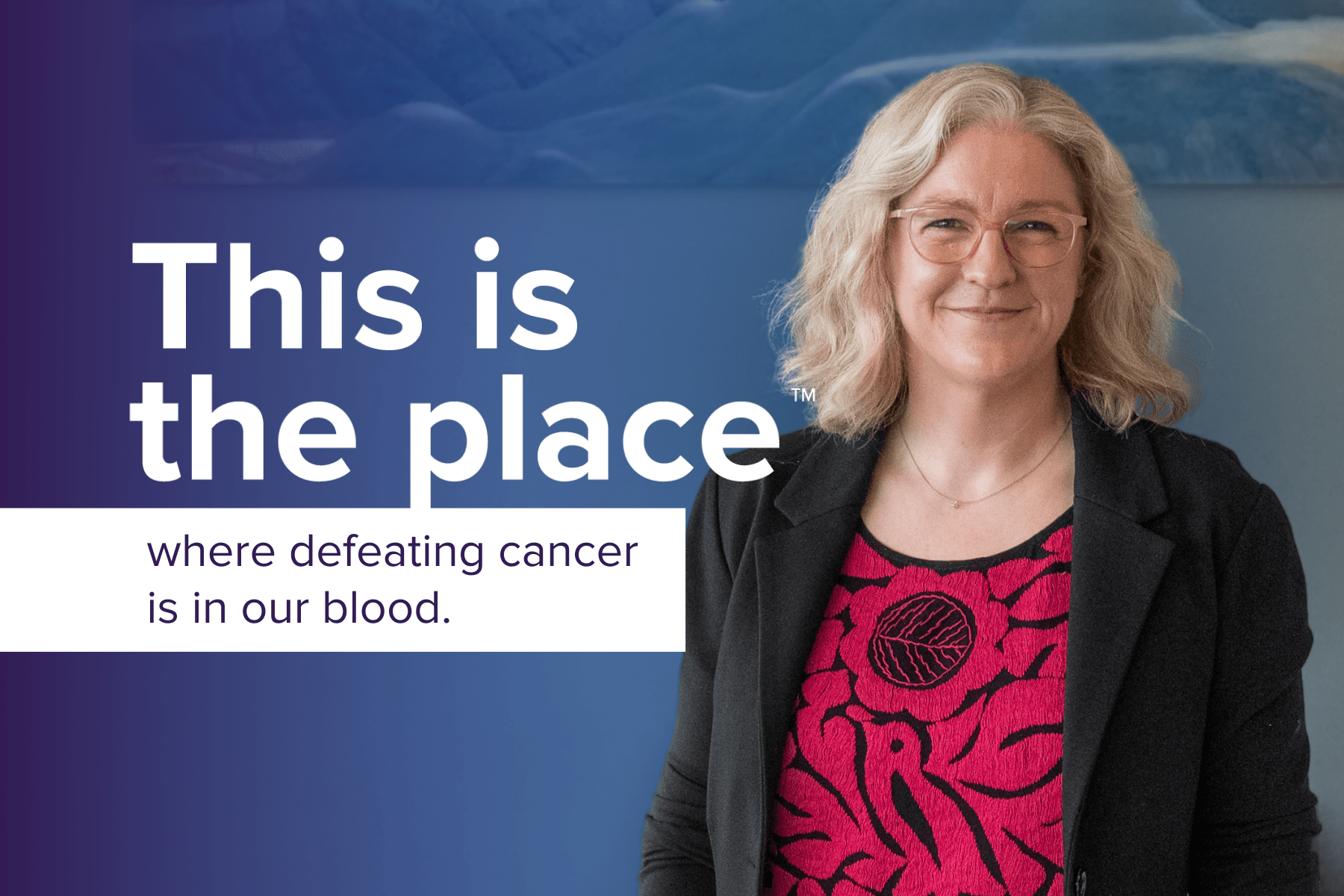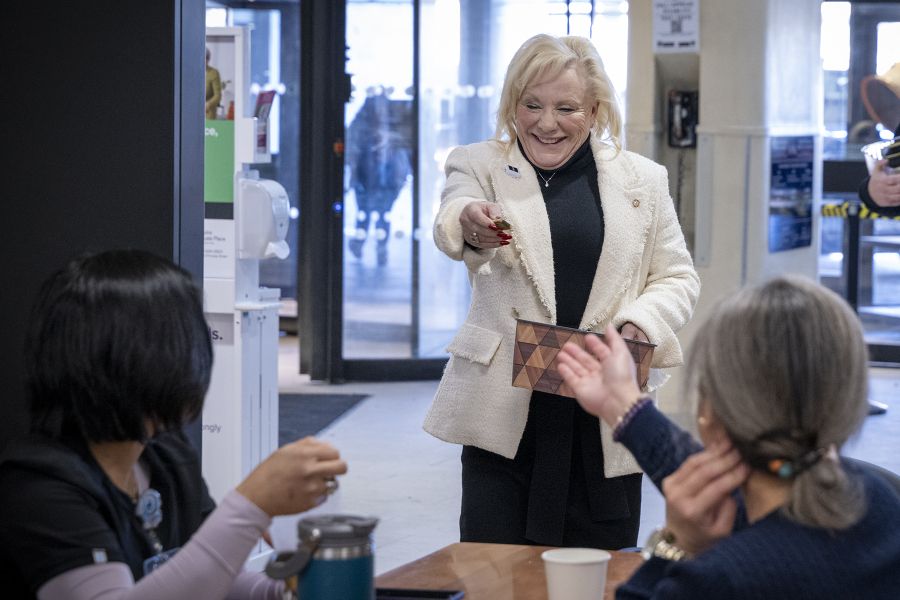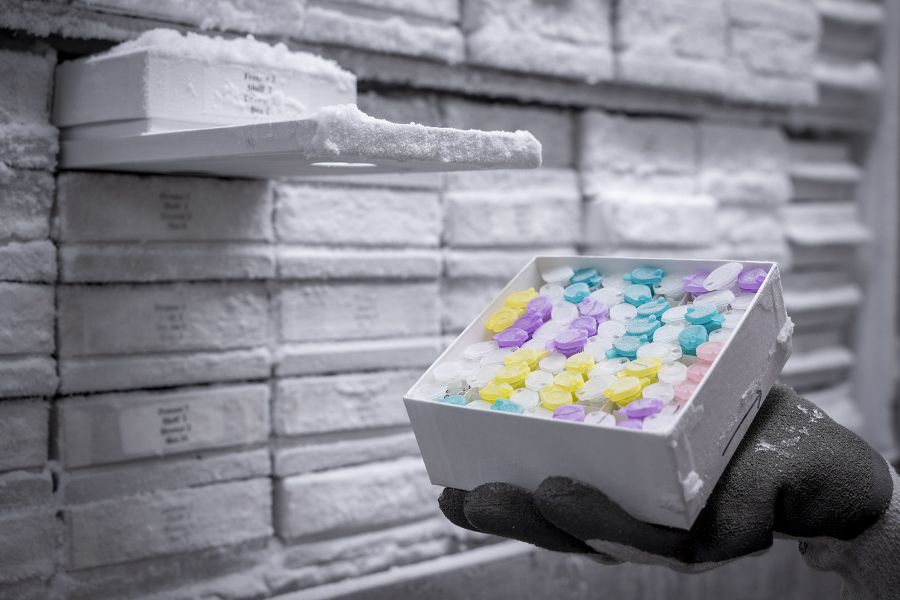
Reengineering a patient’s own immune system to hunt down and destroy cancer cells sounds like science fiction, but it’s not. It’s called Chimeric Antigen Receptor (CAR) T-cell therapy, and it’s now available at Kingston Health Sciences Centre (KHSC).
“This is a long time coming,” says Dr. Annette Hay, hematologist at KHSC and senior investigator with the Canadian Cancer Trials Group. “CAR T-cell therapy is personalized, precision medicine. It’s the next new advancement in cancer care.”
KHSC is now just the fourth site in Ontario to offer this groundbreaking therapy, joining hospitals in Toronto, Ottawa and Hamilton. It means patients in southeastern Ontario can now receive this advanced treatment closer to home.
A new way to fight cancer
CAR T-cell therapy takes a different approach than chemotherapy or radiation. Instead of destroying cancer cells directly, it strengthens the body’s immune system to do the work.
T-cells are white blood cells which help detect and fight infections. But cancer cells can learn to hide from them. The therapy works by collecting a patient’s T-cells and re-engineering them to help them find and attack the cancer.
This highly targeted treatment means that the T-cells are attracted to cancer cells like a magnet to iron. It can be effective even when other treatments haven’t worked.
“For patients with blood cancers like leukemia and lymphoma, it gives us another option,” says Dr. Hay. “When cancers stop responding to chemo, CAR T-cell therapy can lead to longer remission—or even get rid of the cancer entirely.”
"It’s going to save lives”
For Cathy Tidman, what started as back pain in early 2018 turned into something far more serious. After months of persistent discomfort, a series of scans confirmed the diagnosis: lymphoma.
Initial treatment included six rounds of chemotherapy and a stem cell transplant at KHSC, which put her cancer into remission for six months. But when the cancer returned in 2019, Dr. Hay determined that Cathy would be a good candidate for CAR T-cell therapy— which was only just arriving in Canada at the time.
Cathy was originally confirmed for a clinical trial in Toronto, but when her cancer changed, she needed to travel to Cleveland, Ohio for the treatment instead.
It was a case of leaving home and family and moving away from our entire support network. Mentally, we had already been through the ringer, but it was a low point having to leave home. It was another country, and it seemed like it was a million miles away. - Cathy Tidman
Cathy’s husband, Dave, joined her in Cleveland to support her as a caregiver.
They first went down for several days while her T-cells were collected. They then came home for six weeks while the cells were sent to California to be processed, and returned to Cleveland for the procedure. Two weeks were in hospital, four were in a nearby hotel so she could continue to be monitored.
Cathy and Dave are confident that having CAR T-cell therapy in Kingston is going to make a big difference for patients.
“Had we had this in Kingston at the time, we wouldn’t have had to leave,” she says.
“It’s going to save lives,” says Dave. “We wanted to go to Cleveland – and we could - but a lot of people aren’t able. There’re a million reasons someone might not make it.”
Today, Cathy is cancer-free and when she and Dave reflect on their journey, Kingston remains at the core.
“We always felt relief when we got back to Kingston and got care here,” she says. “It’s so much more personal.”
“The team here in Kingston - I think it’s one of the best in Canada, if not the world,” says Dave. “And from what I see as a volunteer with Cancer Care Ontario, you can prove it. The research happening here, the doctors and care teams – it's world class.”
Sometimes I don’t think people realize what a big deal this is. It's really state-of-the-art stuff - and it’s right here in Kingston. I don’t think we brag enough about what’s done here in terms of research and what the staff are doing. The more you see it, the more amazed you are. - Dave Tidman
Built on teamwork, driven by hope
The program at KHSC took more than five years to build. Teams from nearly every corner of the hospital were involved—from the ICU, Hematology, Emergency Department and Clinical Labs, all of which are involved in delivering the treatment, to the IT and legal teams to who worked to build the infrastructure and contracts to make the program possible.
I’m so proud of what this team has built. It shows we’re a leader in this space. It’s exciting—but it’s also serious. These patients need treatment quickly, and we need to make sure we do it right. - Dr. Annette Hay
The launch of CAR T- cell therapy is the beginning of a journey. The success of this type of treatment will mean new applications and increased demand, and the team at KHSC plans to become a leader in this type of care. It starts with high-quality imaging, like PET-CT, but once the current standard-of-care program is fully established, the team plans to begin clinical trials with the goal of eventually engineering therapies in Kingston.
“This is going to need continued support to make sure this ramps up,” said Dr. Hay. “But it’s an outstanding example of what we can achieve when we work together. It’s about giving patients the best possible care—and hope.”



